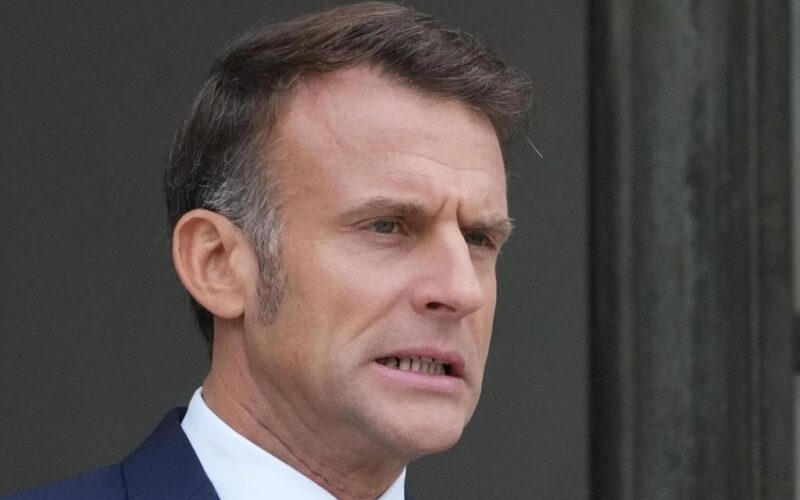PARIS (AP) — After a week of intense political turmoil, French President Emmanuel Macron is set to appoint a new prime minister Friday in his latest bid to break the political deadlock that has gripped the country for more than a year, as France struggles with mounting economic challenges and ballooning debt.
The appointment is widely seen as the president’s last chance to revive his second term, which runs until 2027. With no majority in the National Assembly to push through his agenda, Macron faces increasingly fierce criticism, even from within his own camp, and has little room to maneuver.
Outgoing Prime Minister Sébastien Lecornu abruptly resigned Monday, only hours after unveiling a new Cabinet that drew opposition from a key coalition partner. The shock resignation prompted calls for Macron to step down or dissolve parliament again. But they remained unanswered, with the president instead announcing on Wednesday that he would name a successor to Lecornu within 48 hours.
Political party leaders who met for more than two hours with Macron, at his request, on Friday emerged from the talks saying they weren’t certain what step the French leader would take next and that if he does name a prime minister, who it would be. Some cautioned that another prime minister picked from the ranks of Macron’s fragile centrist camp risks being disavowed by Parliament’s powerful lower house, prolonging the crisis.
“How can one expect that all this will end well?” said Marine Tondelier, leader of The Ecologists party. “The impression we get is that the more alone he is, the more rigid he becomes.”
Worried investors
Over the past year, Macron’s successive minority governments have collapsed in quick succession, leaving the European Union’s second-largest economy mired in political paralysis as France is faced with a debt crisis. At the end of the first quarter of 2025, France’s public debt stood at 3.346 trillion euros ($3.9 trillion), or 114% of gross domestic product.
France’s poverty rate also reached 15.4% in 2023, its highest level since records began in 1996, according to the latest data available from the national statistics institute.
The economic and political struggles are worrying financial markets, ratings agencies and the European Commission, which has been pushing France to comply with EU rules limiting debt.
Uncertainty surrounds the choice of the next PM
Macron, a centrist, could break with his habit and pick a figure from the left, which formed a coalition in the 2024 legislative elections. But left-wing opposition leaders said after the talks with Macron that he doesn’t appear to be leaning in that direction.
The two biggest opposition parties in the National Assembly — the far-right National Rally and the far-left France Unbowed party — weren’t invited to the discussions. The National Rally wants Macron to hold fresh legislative elections and France Unbowed wants him to resign.
Macron could also opt for a technocratic government in an attempt to sidestep partisan deadlock. He also has the option of re-appointing Lecornu, who has said that he’s not seeking the job but who remains a loyal ally and spent weeks before his resignation trying to build consensus around a budget.
Lecornu argued earlier this week that Macron’s centrist bloc, its allies, and parts of the opposition could still clump together into a working government. “There’s a majority that can govern,” he said. “I feel that a path is still possible. It is difficult.”
In any case, the new prime minister will have to seek compromises to avoid an immediate vote of no confidence and may even be forced to abandon an extremely unpopular pension reform that was one of Macron’s signature policies in his second presidential term. Rammed through parliament without a vote in 2023 despite mass protests, it gradually raises the retirement age from 62 to 64. Opposition parties want it to be scrapped.
The political deadlock stems from Macron’s shock decision in June 2024 to dissolve the National Assembly. The snap elections produced a hung parliament, with no bloc able to command a majority in the 577-seat chamber. The gridlock has unnerved investors, infuriated voters, and stalled efforts to curb France’s spiraling deficit and public debt.
Without stable support, Macron’s governments have stumbled from one crisis to the next, collapsing as they sought backing for unpopular spending cuts. Lecornu’s resignation, just 14 hours after announcing his Cabinet, underscored the fragility of the president’s coalition amid deep political and personal rivalries.
Originally Published:












